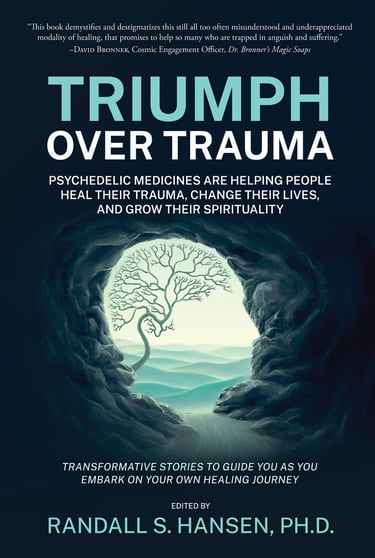Don’t Want a Heart Attack? Fix These Five Things
Many heart attacks are preventable, and many people fear having a heart attack, yet the conventional wisdom of lowering cholesterol while ignoring other factors is outdated and incorrect.
Should you be fearful of having a cardiovascular event? The U.S. Centers for Disease Control and Prevention (CDC) provides some telling statistics:
Heart disease is the leading cause of death for men, women, and people of most racial and ethnic groups, with about 1 in every 3 deaths attributed to heart disease.
One person dies every 34 seconds from cardiovascular disease.
In 2023, just under a million people (919,032) died from cardiovascular disease.
Heart disease cost about $417.9 billion from 2020 to 2021, which includes the cost of health care services, medicines, and lost productivity due to death.
Before President Dwight Eisenhower suffered a heart attack in office in 1955, heart disease was fairly uncommon. In our quest to uncover the cause of the president’s heart attack, researchers eventually settled on fat as the culprit, which began a very long and sad experiment in health.
Today, we have a much better understanding of the true causes of heart disease, and while diet is a big part, healthy fat is not the concern. We now believe that chronic inflammation impairs insulin signaling, contributing to insulin resistance, which then causes greater inflammation. Furthermore, we understand that insulin resistance comes from a steady diet filled with refined sugars and simple carbohydrates.
Are you ready to get to work on preventing a heart attack? You need to fix these key lifestyle factors.
How to Help Prevent a Heart Attack
Here are the actions you should take if you want to help prevent the leading cause of death.
1. Quit Smoking/Vaping. There is no question that smoking permanently causes damage to your heart and lungs, but it also harms nearly every organ in the body, as well as blood vessels, eyes, mouth, bones, bladder, and digestive organs. Smoking results in oxidative stress, increased arterial stiffness, blood pressure, and heart rate changes. Smoking is not only dangerous for the smoker, but people also need to avoid secondhand smoke. Furthermore, multiple studies show that vaping has similar effects to cigarette smoking, so it is critical to eliminate these from your life.
Why avoid smoking and vaping? Because doing so can lead to atherosclerosis, the buildup of plaque in the arteries, as well a higher blood pressure and inflammation of blood vessels (which can exacerbate atherosclerosis as well as increase the risk of blood clots).
See also this article, 10 Things That Happen When You Quit Smoking.
2. Fix Your Diet. If you are following the old guidelines for “heart-healthy” eating, you are actually heading toward insulin resistance and the path to cardiovascular issues.
Here are the current recommendations: First, get off the ultra-processed convenience food diet and onto a diet in which you create healthy meals at home from scratch using the highest quality ingredients you can afford. Second, eliminate all (or as many as possible) sugary beverages, treats, and meals; refined sugars are hiding in the vast majority of convenience foods. Third, eliminate as many simple, refined carbohydrates as possible – including most breads, bagels, tortillas, cereals, pastas, waffles/pancakes, and rice. Fourth, switch out high-omega-6 “vegetable” seed oils (soybean, corn, canola, sunflower, safflower, cottonseed, vegetable) with much healthier and less inflammatory fats (such as avocado oil, olive oil, coconut oil, and grassfed butter). Fifth, find the right mix/ratio of healthy proteins (especially wild-caught fatty fish, wild game, grass-everything beef), organic/pastured poultry, healthy fats (mentioned previously), and healthy fiber (such as seeds and nuts, as well as vegetables).
See also my article, Eight Solutions For Healthier Eating.
3. Move Daily and Often. Most people do not move enough, and it is not enough to try and cram exercise into the weekend. The latest research shows the importance of daily (even hourly) movement, especially for those in sedentary jobs or lifestyles. Exercise has multiple heart-healthy benefits, including strengthening the heart muscle, improving circulation, lowering blood pressure, increasing HDL (so-called “good”) cholesterol, and reducing cortisol levels (see below).
Aerobic exercises, resistance training, and flexibility workouts are all beneficial for heart health, so remember to mix up your workouts. And there is no need to join a gym or buy expensive equipment. Aerobic exercises include things like housework, gardening, walking, biking, swimming, and dancing. Resistance training involves working your muscles through bodyweight exercises (such as push-ups, planks, squats), weight-lifting (using dumbbells or household items as weights), and resistance bands. Flexibility workouts include things like stretching, yoga, and tai chi.
See also my article, Is Exercise a Four-Letter Word to You?
4. Reduce Stress Levels. We have always known that dealing with chronic stress taxes the body, but we now understand that stress can result in multiple pathways to cardiovascular issues, which is why it is vital to develop a plan to reduce your daily stress. Here are the stress pathways: First, chronic stress raises cortisol, the so-called stress hormone, which can result in atherosclerosis, the buildup of fatty deposits in the arteries. Second, elevated cortisol levels can lead to chronic inflammation, which can damage blood vessels and contribute to heart disease. Third, high cortisol levels are also linked to raised blood pressure, which in turn results in a higher risk of heart disease.
Finally, periods of high cortisol levels can also wreak havoc with blood sugar and contribute to weight gain around your belly, known as visceral fat; this type of fat is particularly harmful and is strongly linked to heart disease. High cortisol levels can also increase levels of LDL cholesterol and decrease HDL cholesterol.
See also my article, 10 Expert Tips for Coping With Life's Stressors.
5. Fix Your Sleep. Consistent, restorative sleep is essential to overall health, as sleeping is the time the body works on healing itself. Unfortunately, inconsistent sleep, insomnia, difficulty falling asleep, and non-restorative sleep are all associated with an increase in cardiovascular issues. Continual issues with the lack of sleep can boost stress hormones like cortisol, which can then raise levels of inflammation in the body, as noted previously. Poor sleep can also affect hunger hormones, making it more likely that you’ll crave unhealthy foods and eat more. Finally, poor sleep is also linked to insulin resistance.
The keys to fixing your sleep involve a number of strategies, including keeping to a consistent sleep schedule (bedtime and wake up), ensuring that the bedroom is dark and cool, eliminating all distractions (including all screens and devices), ending eating and drinking hours before bedtime, getting in movement (but not too much exercise close to bed), and practicing good sleep hygiene.
See also my article, 10 Quick Sleep Tips for Helping Stay Healthy.
Final Thoughts About Heart Attacks, Strokes, Cardiovascular Disease
Following these five strategies will have a positive effect, not only on your heart health, but your metabolic health. Following the advice here should help you lose some excess weight, build muscle, and strengthen both mental and physical health.
The one other suggestion to improve heart health, as well as overall health, is to reduce or eliminate alcohol consumption of all kinds. While the relationship is complicated and still being studied, the so-called benefits outweigh the risks.
Finally, please also be very careful with the advice you follow. Remember to always be your own advocate. For example, the American Heart Association is one of several “health” organizations that have been compromised by corporate contributions, making their advice questionable at times.
Additional Reading and Research Related to Cardiovascular Disease
Insulin Resistance and Chronic Cardiovascular Inflammatory Syndrome
Association Between Insulin Resistance and the Development of Cardiovascular Disease
The Impacts of Vaping on the Cardiovascular System: A Systematic Review of Case Reports
Omega-6 Vegetable Oils as a Driver of Coronary Heart Disease: The Oxidized Linoleic Acid Hypothesis
Dr. Randall Hansen is an evangelist, educator, and thought-leader... helping the world heal from past trauma and the poor food system. He is founder and CEO of EmpoweringSites.com, a network of empowering and transformative Websites, including EmpoweringAdvice.com.
He is the author of the groundbreaking Triumph Over Trauma: Psychedelic Medicines are Helping People Heal Their Trauma, Change Their Lives, and Grow Their Spirituality and the well-received HEAL! Wholeistic Practices to Help Clear Your Trauma, Heal Yourself, and Live Your Best Life.
The third book in the Wholeistic Healing Trilogy is the game-changing The HEALing Revolution Diet: A Science-based Approach to Heal Your Gut, Reverse Chronic Illnesses, Lose Weight, Clear Your Mind, and Increase Longevity.
Dr. Hansen's focus and advocacy center around true health and healing journeys that results in being able to live an authentic life filled with peace, joy, love. Learn more by visiting his personal Website, RandallSHansen.com. You can also check out Dr. Randall Hansen on LinkedIn.








